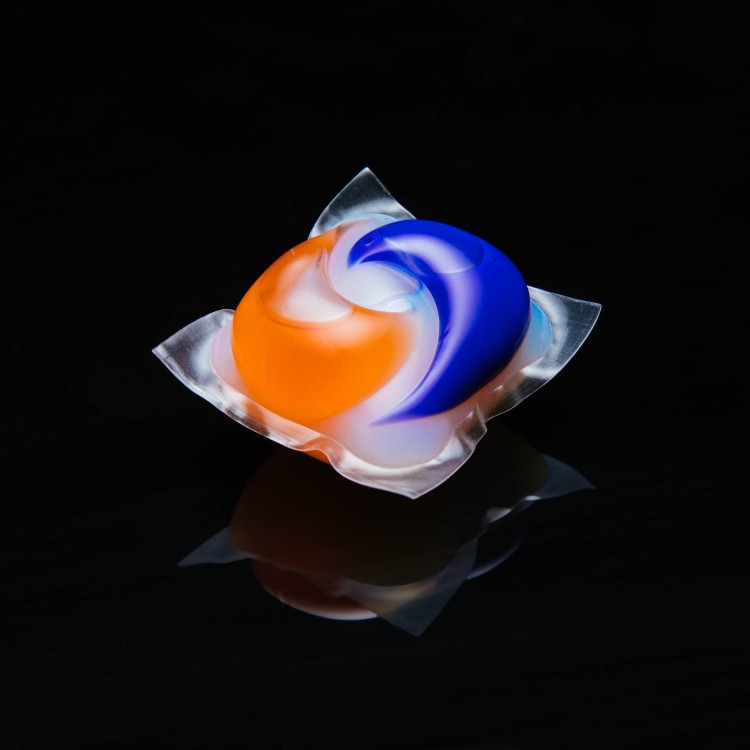

Can a patent firm acting as appellant pay a reduced appeal fee as SME?
- Eligibility requirements for paying a reduced appeal fee by an appellant - opponent in case of opposition filed as a straw man (Reasons 1 to 9.2).
Patentee’s arguments
The Patentee (P) did not dispute that AO as a patent attorney firm qualified as a SME. However, P argued that in accordance with G 4/97, for the purpose of eligibility to pay a reduced appeal fee, when a notice of opposition and an appeal was filed by a patent attorney law firm acting as a straw man opponent for an interested party, the appellant and the interested party should be regarded as linked enterprises within the meaning of Article 3(3) of the Commission Recommendation of 6 May 2003 of the Official Journal of the European Union.
P argued that the contractual relationship between AO and the interested party instructing AO implied that they were linked enterprises, so that the staff headcount and the financial ceilings of both AO and the interested party should be taken into account for assessing if AO fulfilled the requirements of an SME.
P found it unlikely that the opposition had been filed by an SME in the light of the invention at stake, particularly because only one single claim relating to treatments had been opposed. Since in case of doubt, AO carried the burden of proof that the eligibility criteria had been met and AO failed to provide such proof in the present case, P argued that AO was not entitled to pay the reduced appeal fee and the appeal should therefore be regarded as not deemed filed.
AO’s arguments
AO also referred to decision G 4/97, headnotes, as allowing that a professional representative acting in his own name on behalf of a client could file an opposition and that the burden of proof was on the party alleging that an opposition was inadmissible. AO argued that P’s objection was solely based on the speculation that AO’s client was "overwhelmingly more likely" to be a large entity because the objected subject-matter was directed to a medical use claim. However, no evidence was filed to support this speculation. Therefore, the appeal was validly filed.
The Board’s view
The Board followed the arguments of OA and did not agree with P.
Referring to decisions G 3/97 and G 4/97, the Board emphasized that filing an opposition on behalf of a third party was admissible. The status of opponent was a procedural status acquired by any person filing an opposition in compliance with the provisions under Art. 99 EPC in conjunction with Rule 76 EPC.
Accordingly, AO exercised its own right as a member of the public to file an opposition, even if a third party (the "principal") had incited AO to file the opposition. AO could therefore not be regarded to act on the basis of the principal's personal entitlement. The question whether AO followed the instructions of the principal was relevant only to the internal relationship between the principal and AO, but had no bearing on the opposition proceedings. Accordingly, there could not be another true opponent apart from the formally authorized opponent so that the principal could under no circumstances be treated as a party (G 3/97, Reasons 2.1 and 2.2).
The Board considered that the question of eligibility to pay a reduced appeal fee at the present case depended on whether a straw man opponent may validly acquire the status of an opponent/appellant.
With regard to the present case, the patent attorney firm had validly acquired the procedural status of opponent and the Board did not see any special reasons to regard the filing of the opposition in the present case as a circumvention of the law by abuse of process as referred to in decisions G 3/97 and G 4/97 (Headnotes 1(b) and 1(c)). The patent attorney firm was therefore entitled to pay a reduced appeal fee in accordance with Article 2, item 11, RFees and Rule 6(4) EPC.
The Board’s detailed view on specific aspects as listed below:
(1) The Board’s view on whether to apply the concept of linked enterprises
The Board did not find support in the present case for applying the concept of "linked enterprises" for at least two reasons.
First, there was no evidence to support that any of the relationships indicated in Art. 3(3) of the Commission Recommendation, in particular concerning contractual relationships in which an enterprise exercises a dominant influence over another entity, was truly applicable to the contractual relation between AO and the instructing party (the “principal” in G3/97).
Second, assuming that the internal legal relationship between AO and an instructing party had a legal significance for external purposes would be at odds with the interpretation of Art. 99 and Rule 76 EPC as established in G 3/97 and G 4/97. Under the EPC, OA was the only person who mattered. An instructing party would under no circumstances be treated as a party of the proceedings before the EPO. As long as the legal system had no objection to the filing of an opposition by the instructing party itself, there was also no objection to this party inciting a straw man to file an opposition.
This interpretation of the Board was held in line with the fact that under the EPC the opponent's motives are of no relevance for the purposes of the opposition procedure (G 3/97, Reasons 3.2.2 and 3.2.3). Therefore, P’s allegation that the instructing party was not a SME, for which no evidence was provided, was not taken into account by the Board.
(2) The Board’s view on burden of proof regarding the payment of paying a reduced appeal fee
The Board did not see special reasons for investigating the veracity of OA's original SME declaration as requested by P:
The burden of proving that the eligibility criteria have been met was with the person claiming entitlement to pay a reduced appeal fee. In the present case, AO made the necessary SME declaration upon filing the appeal and paying the reduced appeal fee. In reaction to P’s challenge to AO's eligibility for a payment of a reduced appeal fee, AO referred to G 3/97 and G 4/97 and argued that P's allegations were lacking any legal bases and were based on pure speculations. The Board agreed, and had no doubts as to the veracity of AO's original SME declaration.
The Board pointed out that the present case was fundamentally different from those in which a board had required the provision of appropriate evidence because either no SME declaration was filed when paying a reduced appeal fee (T 225/19, Reasons 2.7 and 3), or the qualification of the appellant as SME was at dispute (T 225/19, Reasons 4 and 5). None of these situations applied to the present case.
(3) The Board’s view on potential implications if an appellant paid a reduced appeal fee without having the burden of proof when the fulfilment of the requirements are challenged
The Board did not consider such potential implications.
In the present case, OA had discharged the burden of proving that they fulfilled the requirements for a reduced appeal fee and doubts as to the veracity of the relevant SME declaration were not adequately raised in a convincing manner in the present case.
P’s arguments, if followed, would mean accepting that a person acting on behalf of an instructing party was not the true opponent, but rather that either the instructing party was the true opponent or that they should be considered as multiple appellants. The procedural situation of an appellant consisting of a plurality of persons was however different from a straw man opponent.
P’s arguments would further imply that AO must reveal the motives for the opposition and/or the identity of the instructing party, which was neither the purpose of, nor required by, Art. 99 EPC, as established in G 3/97 and G 4/97 (e.g. G 3/97, Reasons 3.2.2 and 3.2.3).
(4) The Board’s view on whether T 1839/18 availed the argument that companies employing straw men to file their oppositions/appeals could abuse the provisions relating to entitlement to pay a reduced appeal fee
The Board did not agree that T 1893/18 supported such an argument. First, the full appeal fee had been paid. Second, no circumstances had been identified under which an abuse could be concluded, if the entity which assumed the status of opponent actually did not fulfill the requirements for a reduced appeal fee. Quite to the opposite, it was noted in T 1893/18 that it is not up to the Boards of Appeal to "question the wisdom of decisions made by the Administrative Council in full knowledge and awareness of the established jurisprudence of the Enlarged Board of Appeal. Should the Administrative Council have wished to impose further conditions for taking advantage of paying a reduced fee and in order to avoid abuses, it would no doubt have done so." (cf. T 1839/18, Reason 2.20).
The Board concluded that eligibility requirements to pay a reduced appeal fee must be fulfilled solely with regard to the entity which vests the status of opponent/appellant, with due account being taken of the relevant jurisprudence of the Enlarged Board of Appeal, including that concerning the employment of "straw men".
Conclusion of the Board
The Board concluded that the appeal fee had been paid in the correct amount. As a consequence, the appeal was deemed to be validly filed. In the end, auxiliary request 2 with the opposed claim removed was held allowable.
Summary written by the NLO EPO Case Law Team







